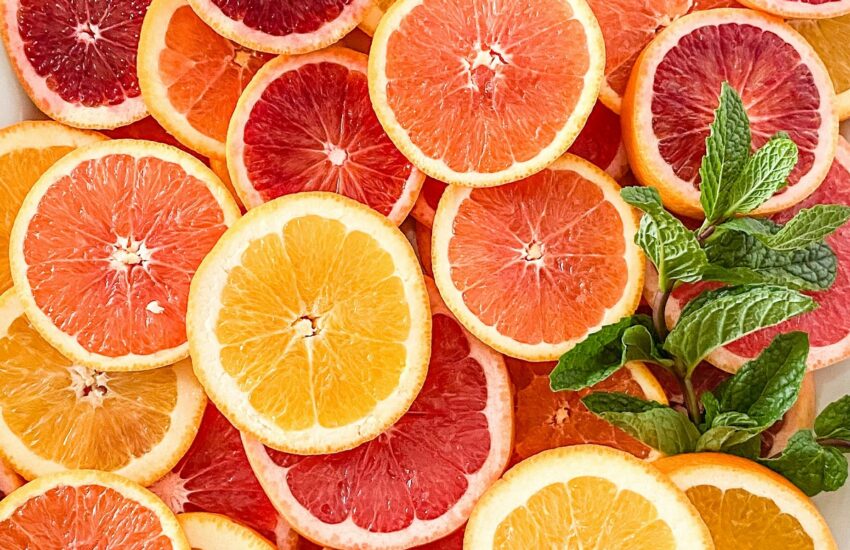Winter is a time when our bodies crave warmth, nourishment, and immune-boosting foods. The cold weather can often make us feel sluggish, and the shorter days leave us with less energy. But nature has provided us with a wide array of fruits that can help us stay healthy, energized, and even uplift our spirits during these months. Winter fruits are often rich in vitamins, antioxidants, and fiber, making them perfect for supporting the immune system and keeping our bodies in top shape.
1. Citrus Fruits
Oranges
Oranges are perhaps the most iconic winter fruit. Their peak season coincides with the colder months, making them a perfect addition to your winter diet. Rich in vitamin C, oranges are excellent at boosting the immune system, helping to fend off colds and flu. Vitamin C also helps to maintain healthy skin and tissue repair. Oranges are also a great source of fiber, which can aid in digestion and keep your gut healthy during the winter when we often indulge in heavier foods.
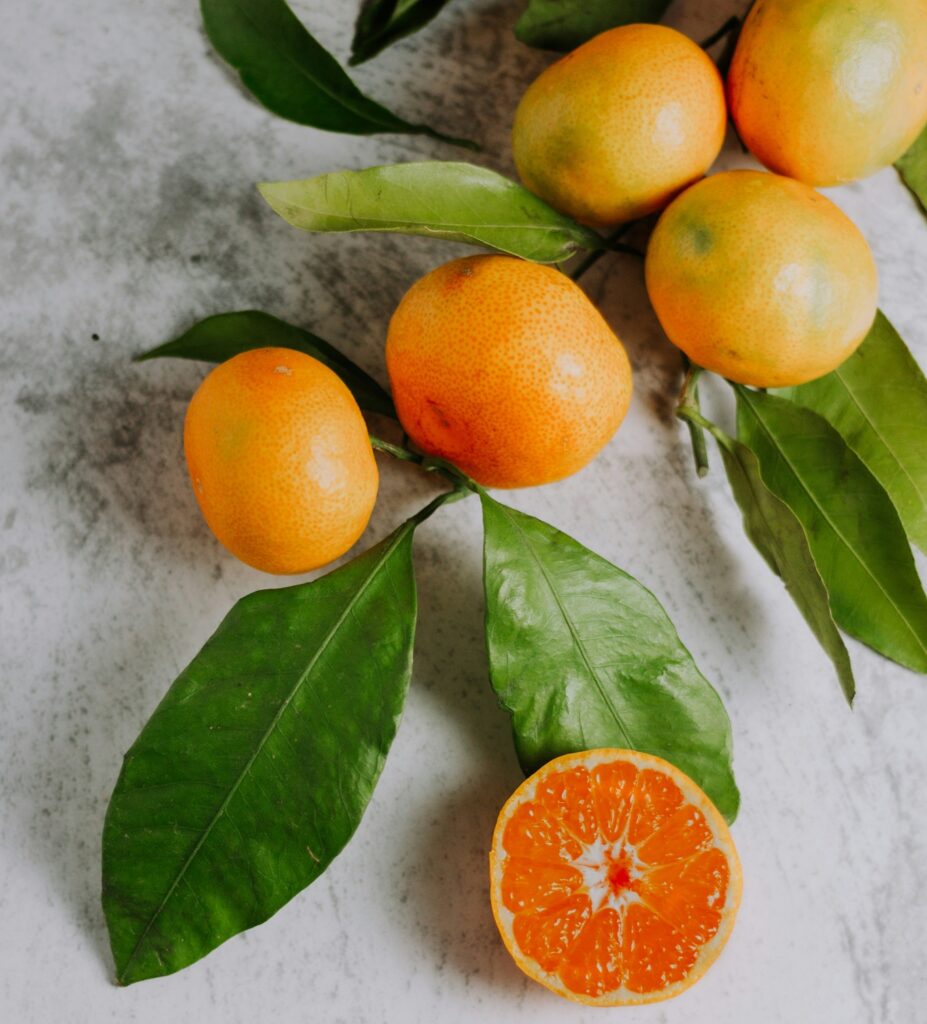
Grapefruits
Another citrus fruit that flourishes in winter is the grapefruit. Known for their tartness and slightly bitter flavor, grapefruits are a fantastic source of vitamin C, fiber, and antioxidants. They are particularly beneficial for improving heart health by reducing cholesterol levels and promoting proper blood circulation. Grapefruits also contain a compound called naringenin. It has been linked to improved fat metabolism and reduced inflammation.
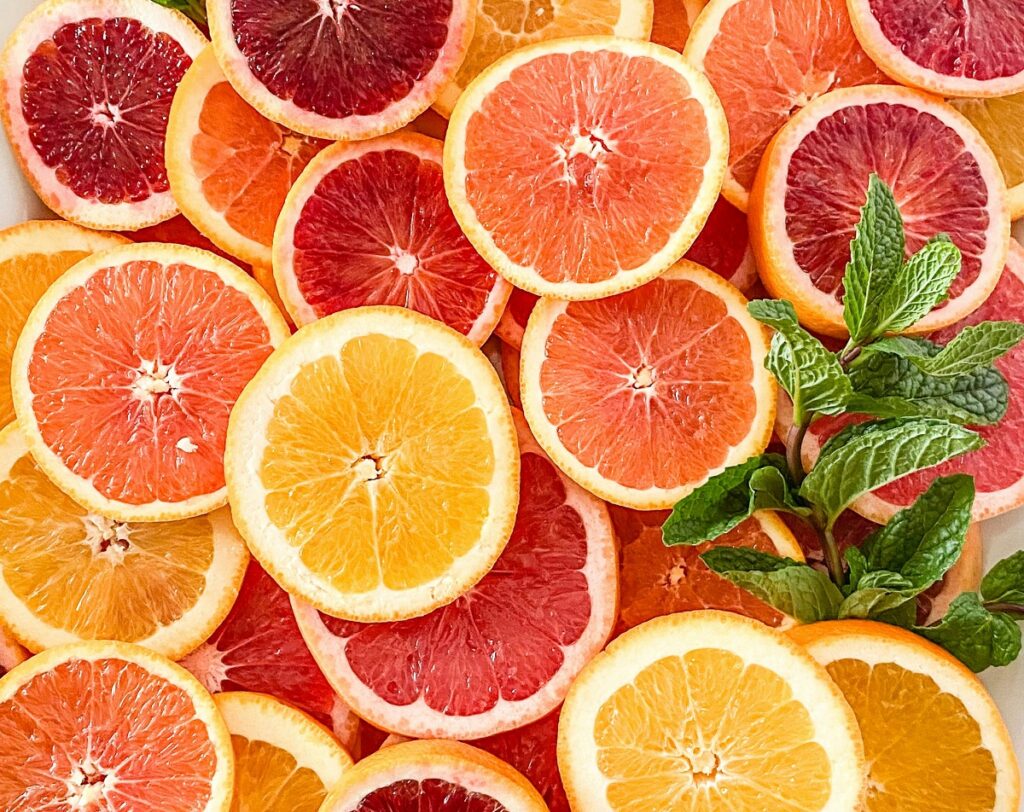
Lemons
Lemons are available year-round, but they reach their peak in winter. They’re an incredibly versatile fruit, used in everything from beverages to cooking. Packed with vitamin C, they support the immune system and act as a natural detoxifier. Drinking lemon water in the morning can help boost hydration, digestion, and metabolism.
Mandarins
Mandarins, including varieties like Clementines and Satsumas, are smaller, sweeter, and easy to peel, making them a convenient and healthy snack. These fruits are rich in vitamin C, folate, and antioxidants, and they are gentler on the stomach than some of their more acidic citrus counterparts. They are perfect for winter snacking and are often included in festive holiday dishes. – Mohit Tandon Houston
2. Apples
Apples are often thought of as a fall fruit, but they are available through the winter months as well, particularly varieties like Fuji, Gala, and Granny Smith. They are rich in fiber, which can help maintain healthy digestion and control blood sugar levels. They also contain powerful antioxidants, such as flavonoids, which have anti-inflammatory properties and can improve heart health. Apples are versatile in both sweet and savory dishes and are perfect for winter desserts, pies, and even in warm, spiced beverages like mulled cider.
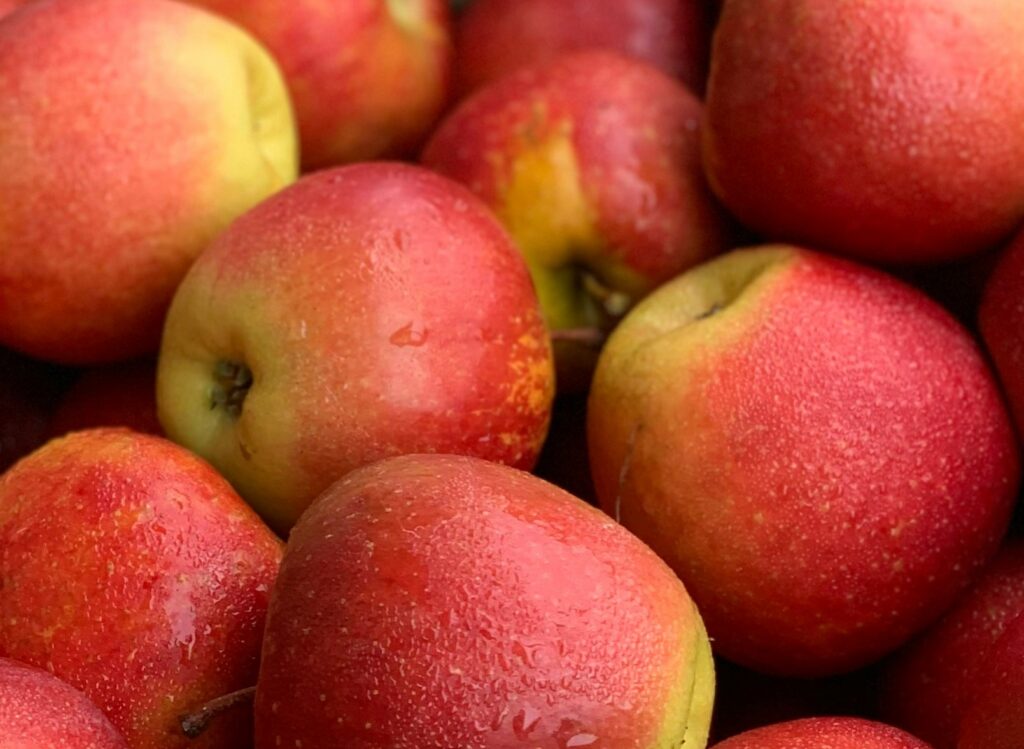
3. Pears
Pears, like apples, are often harvested in the fall but remain fresh into the winter months, especially when stored properly. With their smooth, sweet flesh and a variety of textures, pears are a perfect snack during the cold season. Pears are rich in fiber, which supports digestion and keeps the digestive tract functioning well during the winter when we tend to consume richer foods. They are also a good source of vitamin C and antioxidants, promoting skin health and immunity.
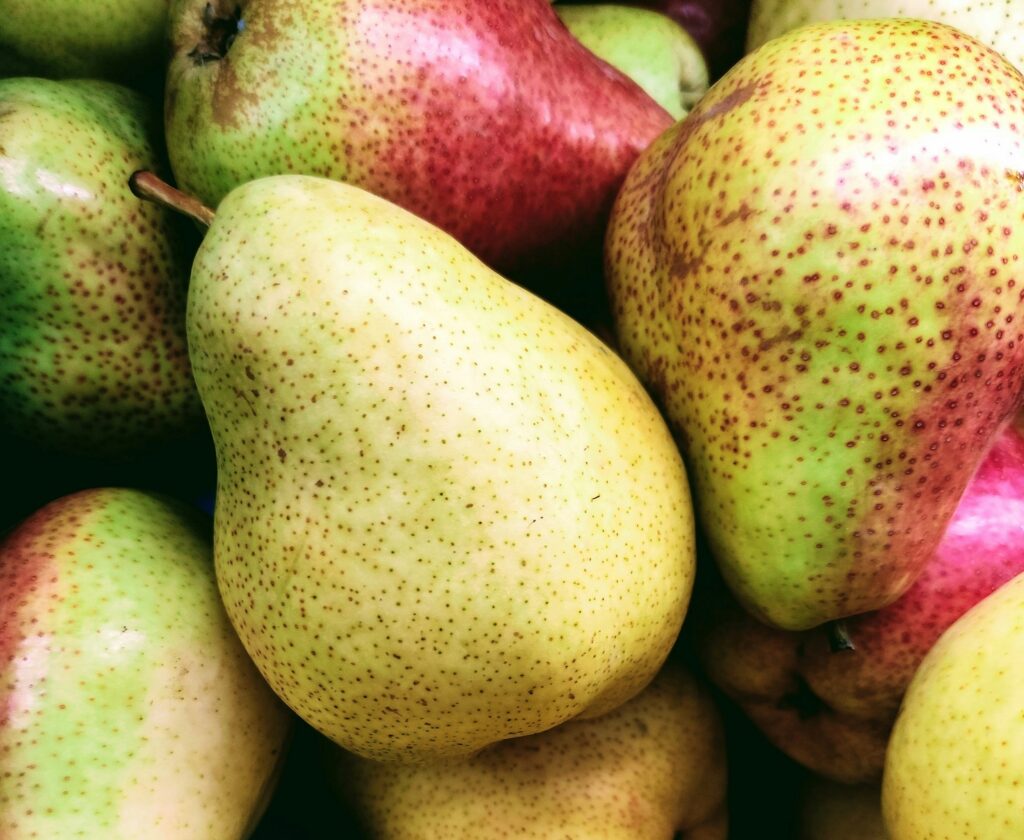
4. Pomegranates
Pomegranates are often associated with winter, as their peak season falls from late autumn to early winter. These ruby-red fruits contains antioxidants, including polyphenols, which help to protect the body from oxidative stress and inflammation. Pomegranates are also high in vitamin C, fiber, and potassium, making them great for supporting the immune system, improving digestion, and maintaining heart health. Pomegranate seeds add a burst of sweetness and crunch to winter salads, smoothies, and desserts.
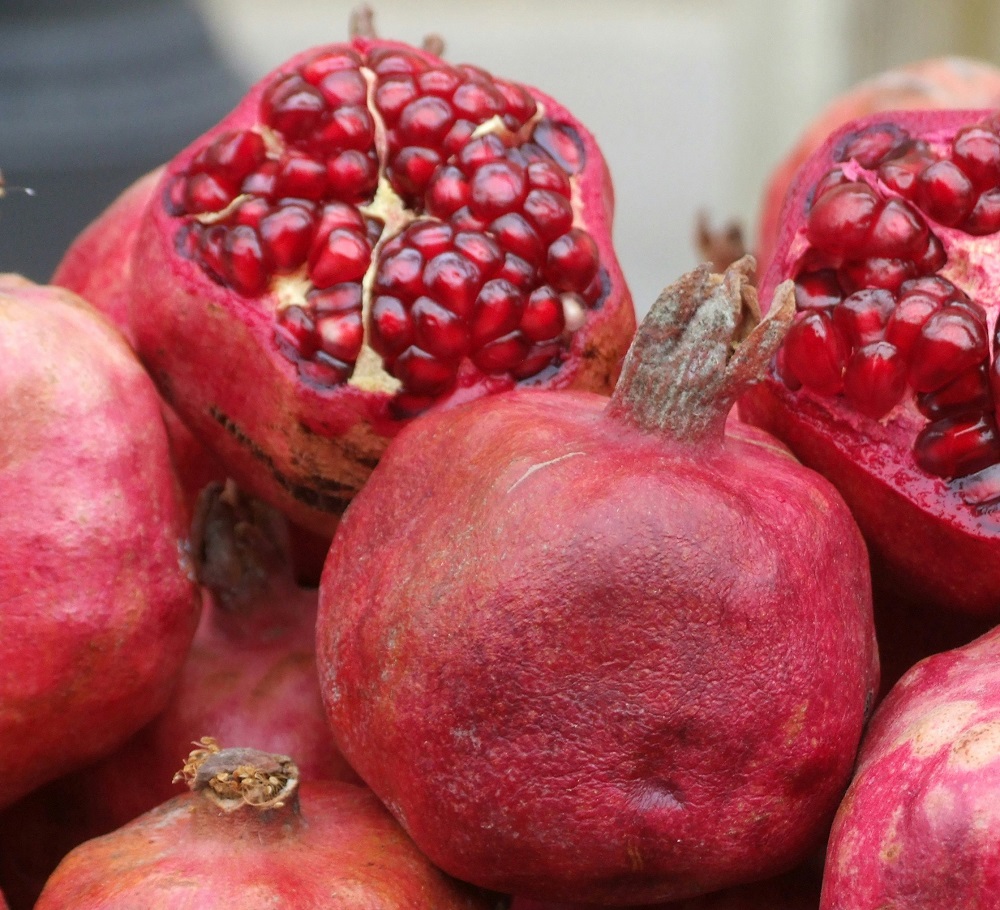
5. Kiwi
Kiwi, a small, fuzzy fruit with vibrant green flesh, is often overlooked but is a powerhouse of nutrients, making it perfect for winter. Rich in vitamin C—more so than many citrus fruits—kiwi helps to boost immunity and combat seasonal illnesses. It also contains fiber, which promotes gut health, and antioxidants, such as vitamin E, which support skin health during the dry winter months. The sweet and tangy flavor of kiwi pairs well with both sweet and savory dishes.
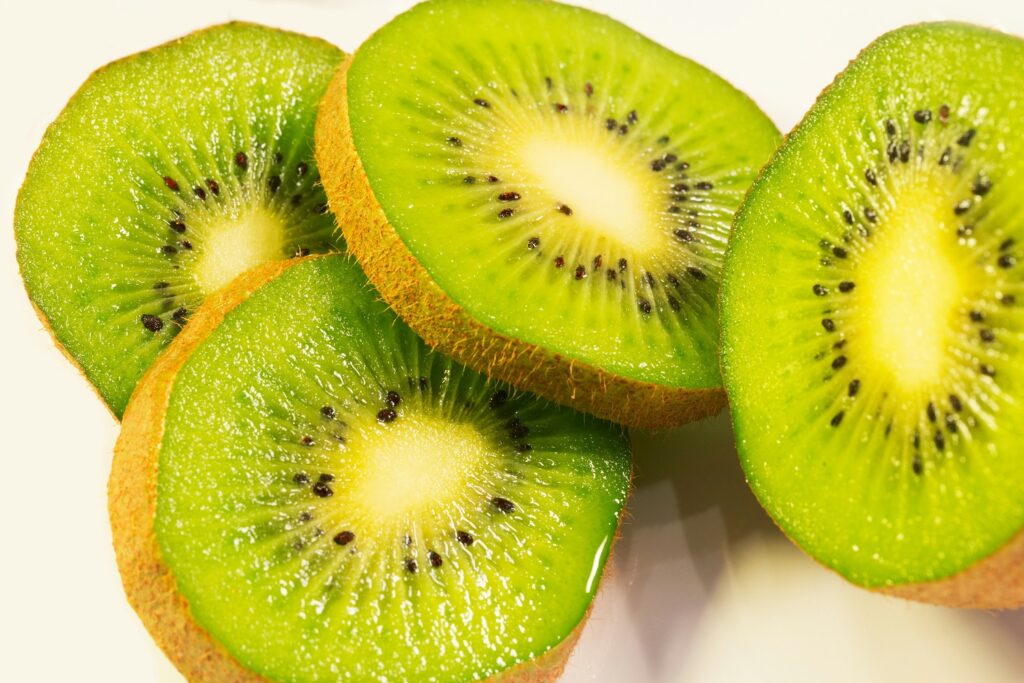
6. Persimmons
Persimmons are a winter delicacy, with varieties like Fuyu and Hachiya available throughout the colder months. These orange, tomato-like fruits are sweet and flavorful when ripe, and they’re an excellent source of fiber, vitamin A, and antioxidants. Persimmons are famous for their ability to improve vision, support heart health, and enhance skin texture, making them ideal for the winter season when skin can become dry and irritated. They can be eaten fresh, added to salads, or used in baked goods like cakes and muffins.
7. Bananas
Bananas, available year-round, are an ideal winter fruit due to their energy-boosting properties. While they are not in season during the colder months, they’re often more affordable and widely available than many other fruits. Bananas contains potassium, which helps regulate blood pressure and maintain muscle function. Their natural sugars provide an instant energy boost, making them a perfect addition to smoothies, oatmeal, or simply as a quick snack. – Mohit Tandon Houston
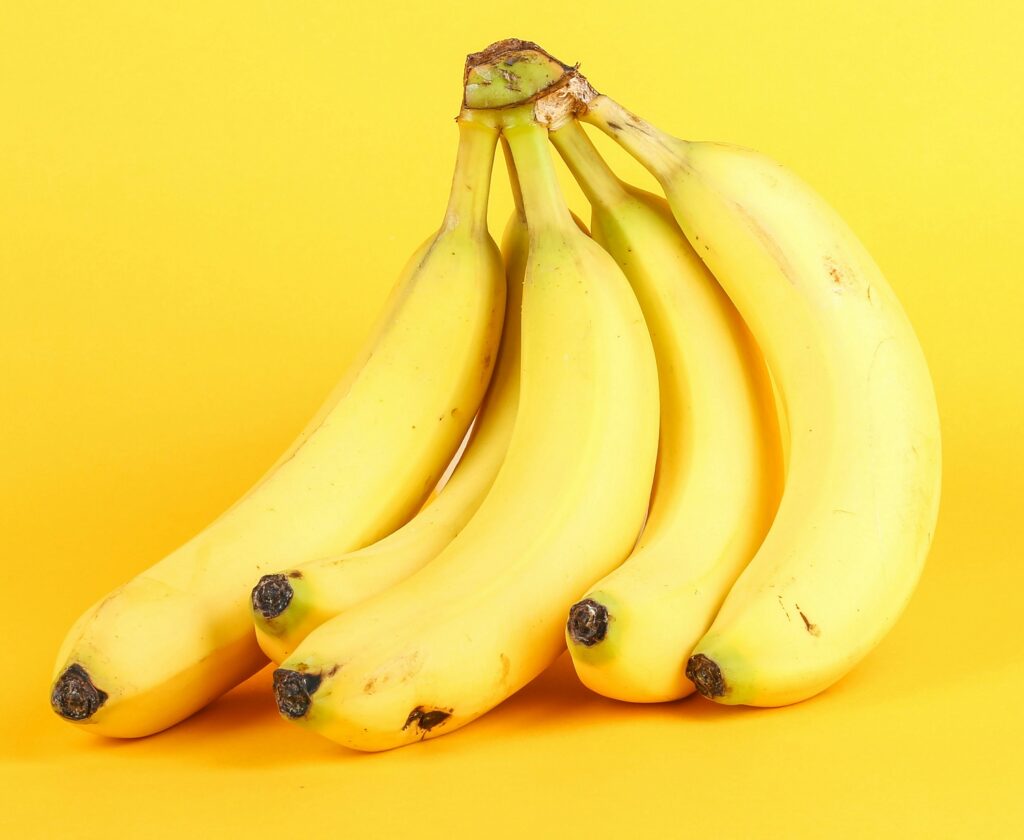
8. Cranberries
Cranberries are one of the most iconic winter fruits, particularly during the holiday season. These small, tart berries contains antioxidants, vitamin C, and fiber, making them great for boosting immunity and supporting urinary tract health. Cranberries are also famous for their ability to reduce inflammation and improve heart health. They can be eaten fresh, though they are often enjoyed in sauces, jams, or added to winter salads. Dried cranberries are also a popular snack.
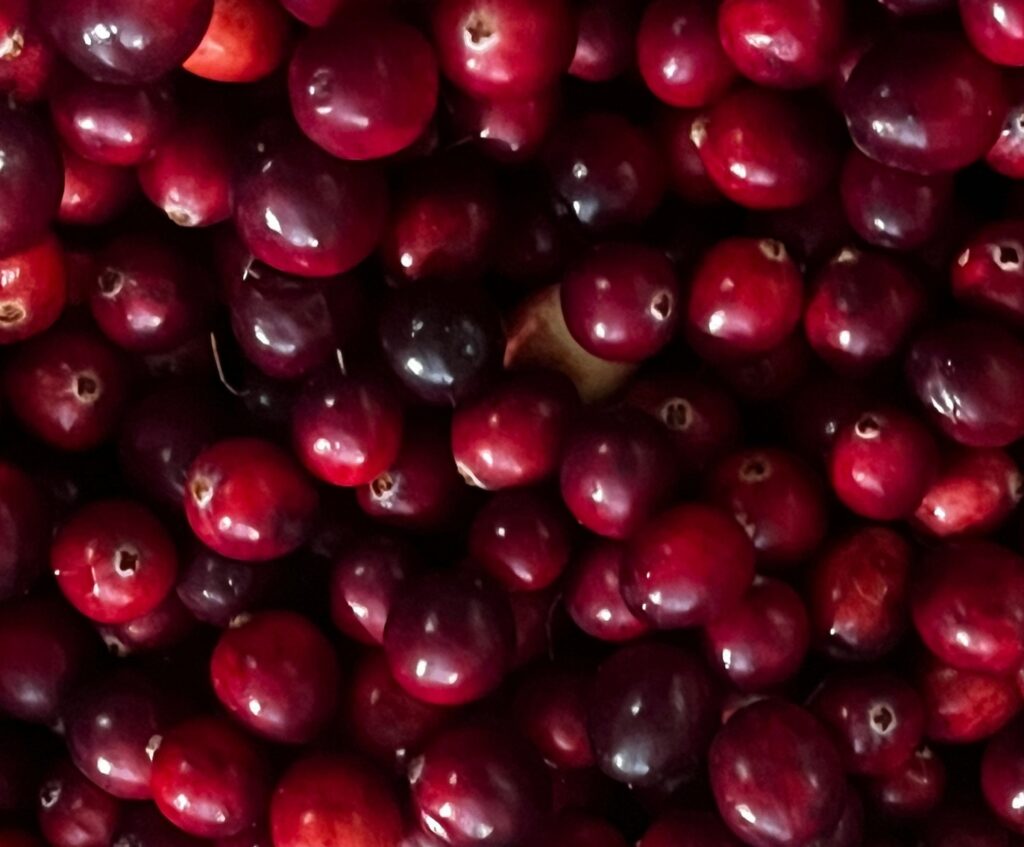
9. Quince
Quince is a lesser-known fruit that ripens in late fall but is available through the winter months. This hard, yellow fruit is not typically eaten raw due to its tartness but can be cooked into delicious jams, jellies, and pies. Quince is rich in vitamin C and antioxidants, which help protect against illness and promote skin health. Its fragrant aroma and rich flavor make it a wonderful addition to winter dishes.
10. Tangerines
Tangerines are a delightful winter citrus fruit that is both sweet and slightly tangy. Easy to peel and segment, they make for an excellent snack. Tangerines are rich in vitamin C, antioxidants, and fiber, all of which are important for maintaining good health during the colder months. Their juicy, refreshing flavor provides a burst of sweetness and hydration, which can be especially appealing during the winter when we may feel dehydrated from the dry air.
11. Pineapple
Though often associated with tropical climates, pineapple is available in winter months, particularly when sourced from warm regions. Pineapple is rich in vitamin C, manganese, and bromelain, an enzyme that supports digestion and reduces inflammation. Pineapple can be a great addition to smoothies, tropical fruit salads, or even roasted as a savory side dish to meats and vegetables. The sweet, tangy flavor offers a refreshing contrast to the heavier, richer foods often enjoyed in winter.
12. Avocados
While technically a fruit, avocados are often thought of as vegetables. They are available year-round and are especially beneficial in winter due to their high content of healthy fats, which support brain health, skin hydration, and heart health. Avocados are a good source of potassium, fiber, and vitamins C, E, and K. Their creamy texture makes them perfect for adding to salads, spreads, and even warming winter soups.
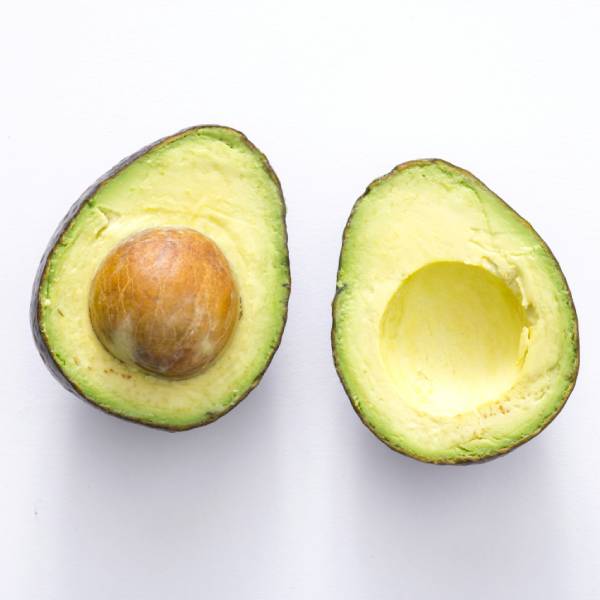
13. Figs
Figs are a unique fruit that thrives during the winter months, particularly in regions with a Mediterranean climate. Fresh figs may be more available during the fall, but dried figs are perfect for enjoying in winter. They are rich in fiber, potassium, and antioxidants, making them a great choice for digestive health and maintaining a healthy heart. You can add dried figs to baked goods, eat them as a snack, or include them in savory dishes like stews.
Conclusion
Winter fruits are an essential part of our diet during the colder months. Not only do they provide a variety of essential nutrients like vitamin C, antioxidants, and fiber, but they also offer the hydration and energy we need to stay active and healthy. Incorporating a variety of these fruits into your daily meals can help you combat the winter blues, maintain a strong immune system, and enjoy the flavors of the season. From the tangy citrus fruits to the sweet, rich pomegranates and persimmons, there’s no shortage of winter fruits to explore and enjoy.
